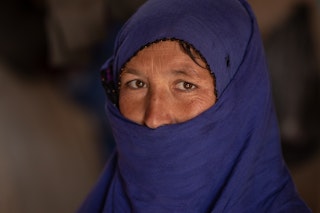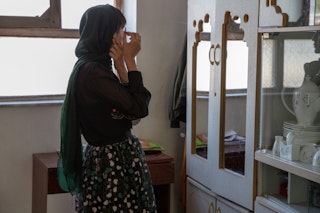“It was not easy for me to burn all the documents that so clearly demonstrated my achievements”
Roqia
Roqia is a law graduate who had actively worked in various organizations focused on psychological counselling. With tears in her eyes, she recounts how her dreams have turned to dust in the days since the Taliban takeover.
“I remember it vividly. It was 15 August 2021, when the news of the fall of the provinces kept coming in, one after another. On that very morning, I received a call from a colleague. She said: ‘Take all your documents; the Taliban are approaching, and they will seize whatever records you have’.
I rushed to my office, where people were in a frenzy, thinking only of escaping the country. I quickly grabbed my documents and my work computer. There seemed to be a deafening roar coming from everywhere, as if heaven and earth were about to collide. Then, after Ghazni fell to the Taliban, I had to leave my home and place of shelter and I headed to Kabul.
Once the situation in Kabul calmed down slightly, I returned to Ghazni, where I had worked on human rights and investigating cases of violence against women. My documents were still [on a work computer hard drive, which is how the Taliban were able to find out my phone number and address], which is why I kept receiving anonymous calls. One day, members of the Taliban’s intelligence services walked into our house, which was adjacent to my office.
Taliban officers, with their long, unkept hair, dishevelled figures and weapons, once again instilled fear in the minds of my children. My husband, a capable man, appeared more terrified than all of us. The Taliban ransacked our house everywhere but failed to find [my documents. After that, for fear they would be found later, I decided to destroy them].
During those days, I carried the weight of being a displaced person at its worst. My husband suffered a nervous breakdown due to his grief, despair and other unknown reasons. Now, with a paralysed husband and my children, I’m searching for a sanctuary that offers a sense of security.
